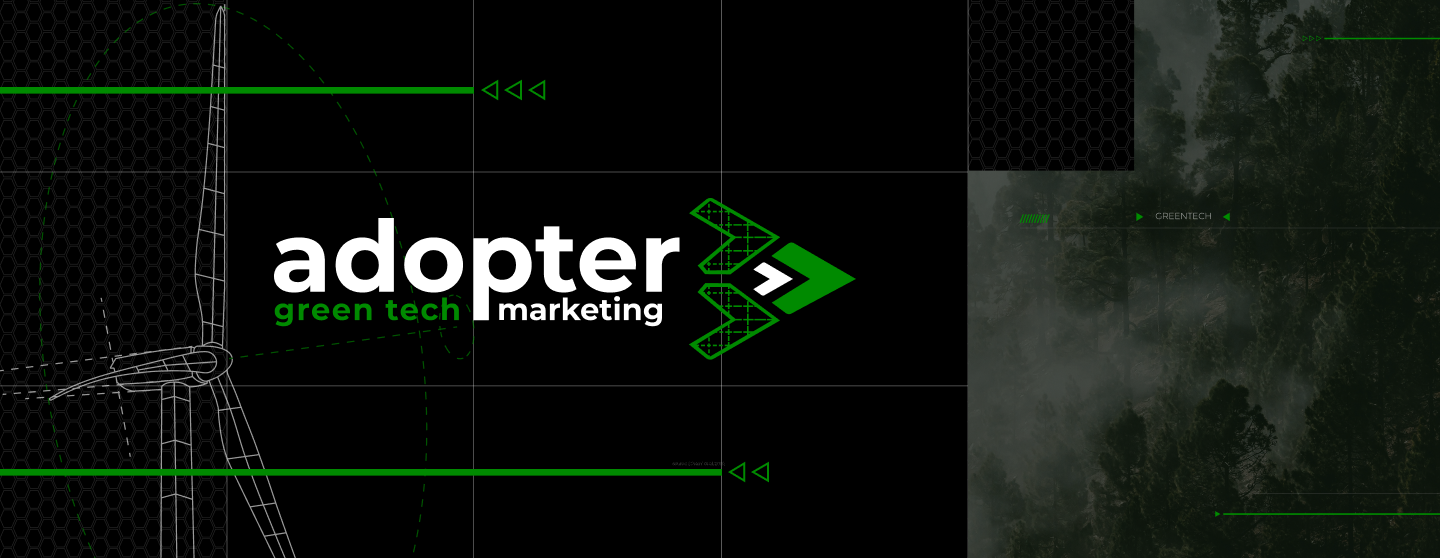

Adopter

County Durham, United Kingdom
April 2023
Advertising & market research
Service with Minor Environmental Footprint
Belgium,
Brazil,
China,
Croatia (Hrvatska),
Czech Republic,
Denmark,
Estonia,
Finland,
France,
Germany,
Greece,
Hungary,
Iceland,
India,
Italy,
Japan,
Latvia,
Netherlands The,
Norway,
Poland,
Portugal,
Qatar,
Romania,
Saudi Arabia,
Singapore,
Slovakia,
Slovenia,
South Korea,
Spain,
Sweden,
Switzerland,
United Arab Emirates,
United Kingdom,
United States
Adopter is a digital marketing company for green technology adoption. Our clients range from startups to scaling businesses, incubators, and international organisations inventing green technologies and supporting green-tech adoption. We help these organisations frame their messaging and grow their online presence, so they can reach the customers, investors, and businesses they need to scale and achieve their goals. By helping them succeed, we help save the world and resolve the climate crisis.
Overall B Impact Score
Governance 19.7
Governance evaluates a company's overall mission, engagement around its social/environmental impact, ethics, and transparency. This section also evaluates the ability of a company to protect their mission and formally consider stakeholders in decision making through their corporate structure (e.g. benefit corporation) or corporate governing documents.
What is this? A company with an Impact Business Model is intentionally designed to create a specific positive outcome for one of its stakeholders - such as workers, community, environment, or customers.
Community 38.4
Community evaluates a company’s engagement with and impact on the communities in which it operates, hires from, and sources from. Topics include diversity, equity & inclusion, economic impact, civic engagement, charitable giving, and supply chain management. In addition, this section recognizes business models that are designed to address specific community-oriented problems, such as poverty alleviation through fair trade sourcing or distribution via microenterprises, producer cooperative models, locally focused economic development, and formal charitable giving commitments.
Environment 13.7
Environment evaluates a company’s overall environmental management practices as well as its impact on the air, climate, water, land, and biodiversity. This includes the direct impact of a company’s operations and, when applicable its supply chain and distribution channels. This section also recognizes companies with environmentally innovative production processes and those that sell products or services that have a positive environmental impact. Some examples might include products and services that create renewable energy, reduce consumption or waste, conserve land or wildlife, provide less toxic alternatives to the market, or educate people about environmental problems.
Customers 21.1
Customers evaluates a company’s stewardship of its customers through the quality of its products and services, ethical marketing, data privacy and security, and feedback channels. In addition, this section recognizes products or services that are designed to address a particular social problem for or through its customers, such as health or educational products, arts & media products, serving underserved customers/clients, and services that improve the social impact of other businesses or organizations.
What is this? A company with an Impact Business Model is intentionally designed to create a specific positive outcome for one of its stakeholders - such as workers, community, environment, or customers.